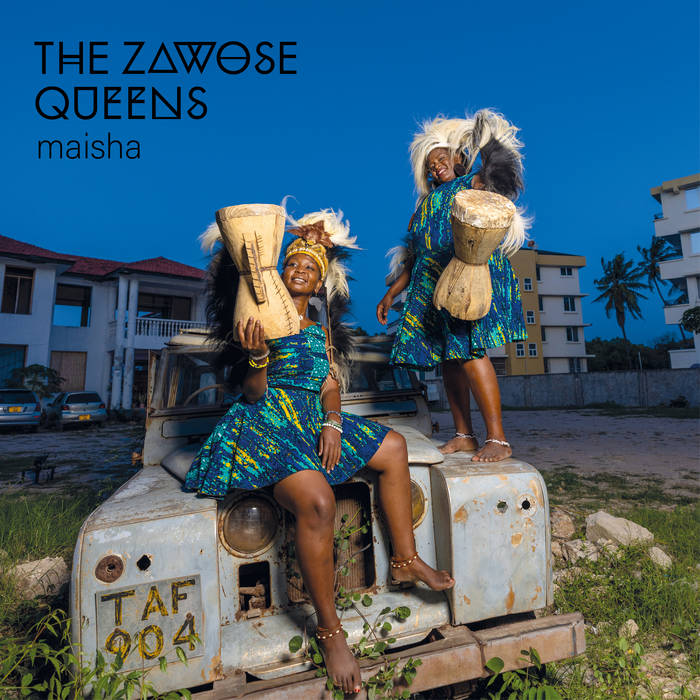This is the debut album from Leah and Pendo Zawose, granddaughter and daughter respectively of the late, and much celebrated Dr Hukwe Zawose, released on Real World Records. The lineage is relevant here as this is the first time that women have fronted music from this long-running Tanzanian musical dynasty. Pendo joined her father’s trope at fourteen years old but was never allowed to sing lead vocals. As such, there is perhaps a particular force, power and joyfulness to what is happening here.
The songs reach deeply and authentically into the musical traditions of the Wagogo People of Tanzania, and unfold over a scaffold of polyrhythm, chizeze filddle, thumb piano and an assortment of percussion and drums. There are also interventions of electronica that re-enforce the groove and add rich bass and controlled, tight rhythms.
It is the voice that most astonishes here. The musicianship is of the highest order, and the richness of polyphony is engrossing, the intervals and intertwining lines of melody are constantly surprising and delivered with an embodiment and apparent ease that is pretty breathtaking. I would think any opportunity to attend a live performance should be swiftly taken up. There is a remarkable coherence to this album as the musical patterns flow round their repetitions with Pendo and Leah swimming through these currents and eddies like the most agile of fish. Thematically the songs take on tradition and pride (‘Fahari Yetu’), motherhood (‘Sauti Ya Mama’), and various approaches to the spirituality of East African music. There are of course other influences here, moments that contain a seasoning of fusion, afrobeat, hip hop and satisfyingly, on ‘Mapendo’, a subtle flirtation with dub via modular synth (with great bass and guitar parts, too). The album is a gorgeous stew of musical openness and stylistic shape-shifting, without once abandoning the heritage that has birthed it.
Production is overseen by Tom Excell and Oli Barton-Wood and it is often superb. Both have a broad and extensive output, and this project appears to have grown from workshops in songwriting and production the pair undertook in East Africa. The recordings, many of them live and outside, are pretty wonderful, and the additional overdubs and electronic interventions are tasteful and subtle. That said, there are moments that are just little too clean and precise for my personal tastes, but the production work is impressive, nonetheless, and always allows the musicians and singers ample space to be, without feeling overly editorial or surgical. Check out the wonderful ‘Muheme’ for an example of the delicate balance of performance and production rendered particularly well.
The intention of this release as not just an exercise in personal emancipation, but also a kind of love letter and embracive encouragement to other Tanzanian and East African women is writ large and is of obvious importance to the Zawose Queens. As such, it may well become a record of weighty significance. Accomplished, beautiful and brimming with joy, hope and strength. Listening to this album is time very well spent.


